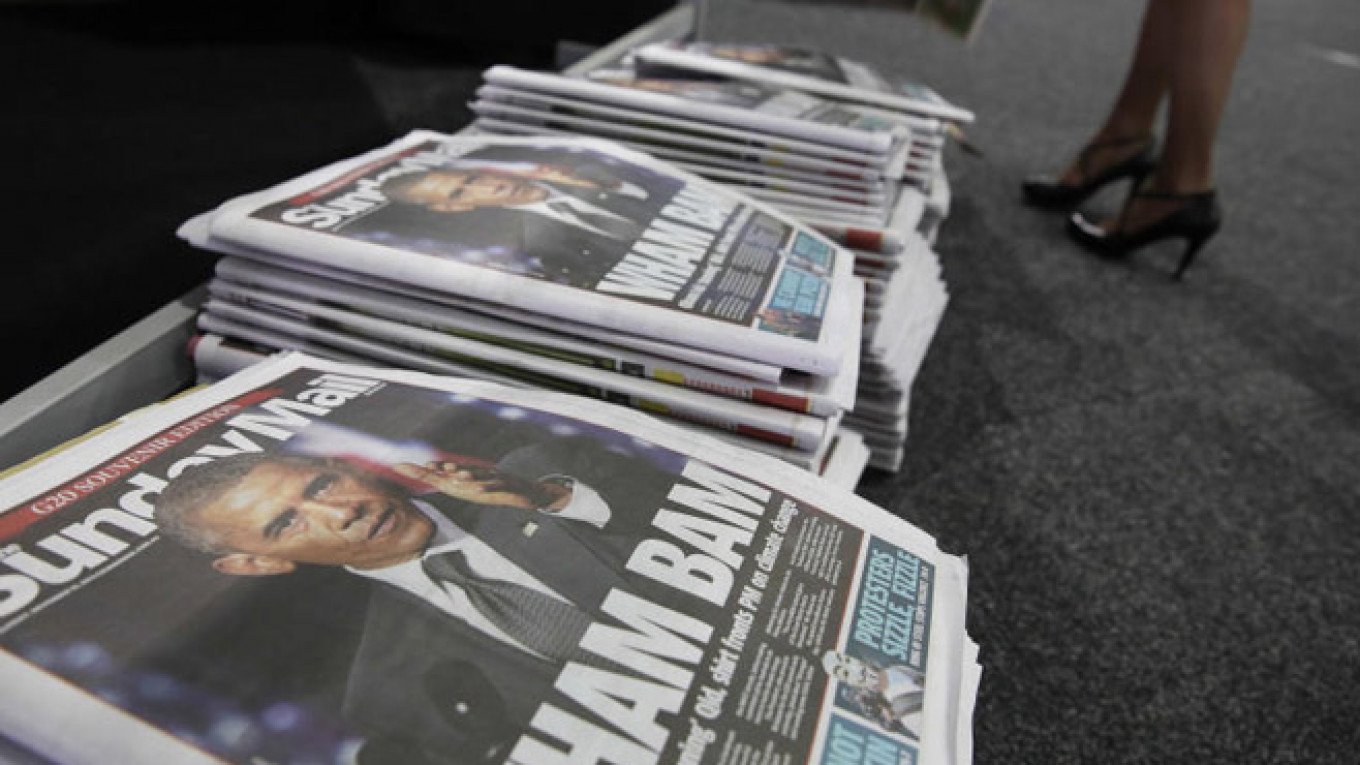The heads of foreign-owned publishing houses in Russia have appealed to President Vladimir Putin to defer a recently passed law set to impose major restrictions on foreign media ownership in the country.
Starting in 2016, the law will inflict a 20-percent cap on foreign ownership of domestic media assets, a move critics say will bring an end to foreign investment and put a massive dent in the advertising revenue of media companies.
German publishing houses Axel Springer and Burda initiated an appeal to President Vladimir Putin to push back the date when the law takes effect, according to RBC, which cited an unidentified executive at one of the companies. The press service of Burda Media confirmed to RBC that the general director of the company, Jurgen Ulrich, had signed the letter to Putin, which was sent on Friday.
Other media holdings invited to sign included Bauer Media, Swedish company Bonnier, Danish publisher Egmont, Italian media company De Agostini and Finnish publishing house Sanoma Independent Media, which owns The Moscow Times.
The press service for Bonnier confirmed for RBC that it had participated, but it was unclear whether all of the others had signed the letter.
The amendments to Russia's media law last September will also force any Russian companies that have founded media brands through foreign jurisdictions to bring their ownership in line with the new requirements by 2017.
The law, which passed three readings in the State Duma at breakneck speed, was slammed by critics who argued that it would have crippling consequences. Western capital has been instrumental in developing Russia's media landscape since the fall of the Soviet Union, and with the adoption of the bill, many foreign media companies will likely be forced to sell off their Russian assets or close altogether.
An attempt by media executives in October to convince officials of the Communications and Press Ministry to postpone the law was unsuccessful, however, according to newspaper Kommersant. At that time, officials said the law left enough room and time for media companies to restructure in accordance with the new requirements.
Contact the author at a.quinn@imedia.ru
A Message from The Moscow Times:
Dear readers,
We are facing unprecedented challenges. Russia's Prosecutor General's Office has designated The Moscow Times as an "undesirable" organization, criminalizing our work and putting our staff at risk of prosecution. This follows our earlier unjust labeling as a "foreign agent."
These actions are direct attempts to silence independent journalism in Russia. The authorities claim our work "discredits the decisions of the Russian leadership." We see things differently: we strive to provide accurate, unbiased reporting on Russia.
We, the journalists of The Moscow Times, refuse to be silenced. But to continue our work, we need your help.
Your support, no matter how small, makes a world of difference. If you can, please support us monthly starting from just $2. It's quick to set up, and every contribution makes a significant impact.
By supporting The Moscow Times, you're defending open, independent journalism in the face of repression. Thank you for standing with us.
Remind me later.


